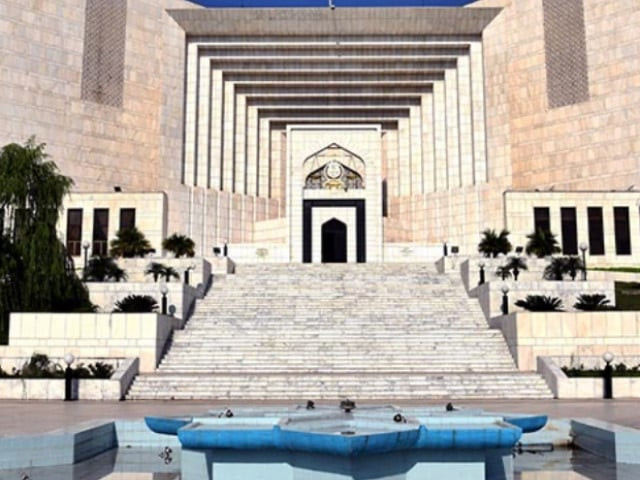Timing of SC's reversal could undermine democracy
Concerns rise over horse trading in parliament and constitutional amendments

The recent reversal of the Supreme Court's earlier judgment regarding the interpretation of Article 63 A could open the floodgates to horse trading in Parliament, raising alarms over the potential erosion of democracy as constitutional amendments aimed at establishing a new apex court loom on the horizon.
While the majority decision - which stated that votes of defecting lawmakers would not be counted under Article 63 A - was met with scant support, the review petition against this judgment had been languishing for 26 months.
The political landscape shifted dramatically when the current government lost its two-thirds majority in the parliament following a July 12 ruling in the reserved seats case.
In response, Chief Justice of Pakistan (CJP) Qazi Faez Isa proposed that the review petition regarding Article 63A be listed for hearing. He even suggested that a larger bench led by Justice Syed Mansoor Ali Shah should take up the matter.
However, the majority of judges on the committee did not back his recommendation for an expedited hearing due to the summer vacation.
Following the summer break, the government made amendments to the Supreme Court Practice and Procedure Act 2023 through an ordinance, a move that resulted in CJP Isa removing Justice Munib Akhtar from the committee.
Subsequently, a new committee formed a larger bench, led by CJP Isa, to hear the review petition, including judges aligned with the current administration.
Interestingly, Justice Munib Akhtar, who authored the original judgment, declined to participate in the larger bench for two reasons.
Instead of addressing those reasons, CJP Isa hurriedly proceeded to hear the matter without the author judge present. Ultimately, on Thursday, the larger bench unanimously reversed the top court's earlier decision regarding the interpretation of Article 63-A.
With this new ruling, the votes of defecting lawmakers will now be counted under Article 63-A.
'Unholy haste'
Abdul Moiz Jaferii believes that the original 63-A decision was incorrect. However, in the years after it was issued, it became the single thorn in the foot of the establishment by rendering it impossible to turn individual members against party lines.
"But the decision is irrelevant. Its timing and the unholy haste with which the proceedings were conducted are worth the actual comment," he reckoned.
He feared that the decision would pave the way for a constitutional amendment to be forced through; "the drafts of which show it to be a clear assault upon the superior judiciary".
Jaferii said that written filings were stated to be unnecessary and counsel was refused time to prepare.
The bench commented on how they didn't know of any constitutional amendment in the works or how the review would affect it. But in responding to allegations that their decision today would allow for horse-trading, the bench did know of horse trading that occurred in 2018.
"If comments from the bench are anything to go by, these judges were unaware of any pressure upon parliamentarians or of the content of any constitutional amendment," the lawyer said.
"We now know that there are exactly five people in Islamabad who will be genuinely caught by surprise when the government bulldozes through an amendment. It will be the five judges of this court who didn't know it could happen," Jaferii added.
Chaudhry Faisal Hussain, representing Imran Khan in the case, stated that the judgment would undermine the intent of the legislature.
He emphasized that the object and purpose of the clause was to prevent floor crossing and impose an embargo on horse-trading in parliament. The amendment was collectively introduced by the late Benazir Bhutto and Nawaz Sharif in the 1990s.
Hussain expressed concern that Article 63-A may not be effective, as a defected member can be re-elected immediately after being de-seated. He asserted that, given the current ECP's composition, there is little doubt that all turncoats will eventually find their way back into parliament.
He highlighted that the timing of the review judgment is the real issue, questioning why the case was fixed for hearing after two years, particularly before a controversial bench.
Hussain further claimed that the current government is intent on eradicating PTI from Pakistan's political landscape with the assistance of the Election Commission and a handpicked judiciary. He contended that the so-called constitutional court would be used as a tool to further this ill-motivated agenda.
Similarly, Barrister Asad Rahim Khan pointed out that the original 63-A judgment went far beyond the text of the Constitution, and was difficult to justify per the law.
"That said, the absurd way in which the procedure committee was commandeered by the executive; the bench brazenly formed; and the author judge excluded, is before us," he said.





















COMMENTS (1)
Comments are moderated and generally will be posted if they are on-topic and not abusive.
For more information, please see our Comments FAQ